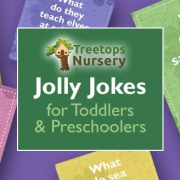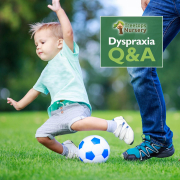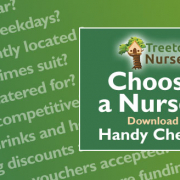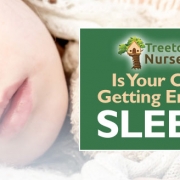Early Years Exercise – & Why it’s Essential
The Benefits of Exercise
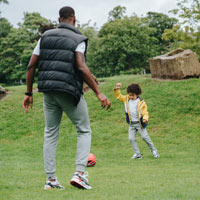
In this article, we’ll look at the benefits of regular exercise to children and why it’s so essential, particularly for children under five. Exercise is shown to have a huge range of benefits to humans, and this is especially true for children, as we’ll see.
Students who are physically active tend to have better grades, school attendance, cognitive performance (e.g., memory), and classroom behaviours.2
Last but not least, exercise and physical activity can be great fun! Indeed, that is the key to encouraging children to exercise. Exercise doesn’t have to be a dull, repetitive chore. In contrast, it can and should be thoroughly good fun and great entertainment if approached in the right way. For example, as part of a game, sport activity or physical ‘challenge’.
Higher physical activity and physical fitness levels are associated with improved cognitive performance (e.g., concentration, memory) among students.3
With the NHS reporting that one in every five UK children are overweight or — worse — obese before they even start school, exercise is a critically important issue. If we can get children into good exercise and healthy eating habits in their early years, they’re statistically more likely to maintain healthy weights and to generally be more healthy as they grow towards adulthood.
Exercise Recommendations for Toddlers & Preschoolers
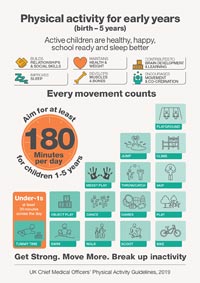 UK chief medical officers and the NHS each recommend4 a minimum of 3 hours (180 minutes) of physical activity every day for toddlers (1 to 2) and preschoolers (aged 3 to 4). The three hours should be spread over the course of the day and the NHS suggest a mixture of both light activity and more energetic physical activity, both indoors and outdoors (weather conditions permitting). A useful infographic4 can be downloaded via the thumbnail image shown.
UK chief medical officers and the NHS each recommend4 a minimum of 3 hours (180 minutes) of physical activity every day for toddlers (1 to 2) and preschoolers (aged 3 to 4). The three hours should be spread over the course of the day and the NHS suggest a mixture of both light activity and more energetic physical activity, both indoors and outdoors (weather conditions permitting). A useful infographic4 can be downloaded via the thumbnail image shown.
Toddler exercise can include light activities such as standing up and generally moving around, rolling around and playing. Skipping, hopping, jumping and running activities would be suitable as the more energetic types of exercise from time to time each day. Active play can include climbing, cycling, ball games and playing in water. Supervised closely, of course.
Preschoolers aged 3 to just under 5 can do any of the above but it can be a little more vigorous, at times, as they’re a little more sure-footed and coordinated by that age.
Exercise for Babies
Parents, childcare professionals and carers should encourage babies to be active at periods throughout the day. Crawling is good (supervised and safe, of course). If they haven’t yet mastered crawling, they can move about on the floor as best they can (again under close supervision), moving limbs around, pushing, pulling, reaching, grasping and so on. The UK Chief Medical Offices’ guidelines suggest at least 30 minutes spread across the day.
There is now a large body of evidence that the amount of physical activity in the Under-5 period influences a wide range of both short-term and long-term health and developmental outcomes.4
Exercise & Physical Activity at Treetops Nursery, Willesden
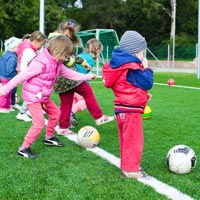 Knowing how important it is, we take exercise very seriously at Treetops Nursery in Willesden. However, we ensure that it’s always fun and exciting, so that children enjoy it, naturally. Physical movement and active play are all part of the nursery’s EYFS curriculum, in fact. As well as carefully planned physical activities, active play, games and challenges tailored to the needs and abilities of each individual child, the nursery has a huge range of toys, games, equipment and interactive facilities. Together, these naturally encourage physical movement and exercise. The programme is pre-planned by staff and a ‘Key Person’ allocated to each child. In this way, every child accomplishes an optimal early years education and well-rounded developmental opportunities, achieving personal bests along the way in readiness for the time when they’ll move on to school.
Knowing how important it is, we take exercise very seriously at Treetops Nursery in Willesden. However, we ensure that it’s always fun and exciting, so that children enjoy it, naturally. Physical movement and active play are all part of the nursery’s EYFS curriculum, in fact. As well as carefully planned physical activities, active play, games and challenges tailored to the needs and abilities of each individual child, the nursery has a huge range of toys, games, equipment and interactive facilities. Together, these naturally encourage physical movement and exercise. The programme is pre-planned by staff and a ‘Key Person’ allocated to each child. In this way, every child accomplishes an optimal early years education and well-rounded developmental opportunities, achieving personal bests along the way in readiness for the time when they’ll move on to school.
Are you Looking for Nursery Places in Willesden, Harlesden, Kensal Green or NW10?
At time of writing we have a few places available at Treetops Nursery in Willesden, near Harlesden and Kensal Green in London’s NW10. Do get in touch while they’re still available if you are looking for the highest quality childcare for babies, toddlers and under-five children in those areas. We’ll be happy to discuss nursery places with you …
References:
1. Physical Activity Guidelines Advisory Committee. 2018 Physical Activity Guidelines Advisory Committee Scientific Report. Washington, DC: US Dept of Health and Human Services; 2018.
2. Centres for Disease Control and Prevention. The Association Between School-Based Physical Activity, Including Physical Education, and Academic Performance. Atlanta, GA; Centres for Disease Control and Prevention, US Department of Health and Human Services; 2010.
3. Michael SL, Merlo C, Basch C, et al. Critical connections: health and academics. Journal of School Health. 2015;85(11):740–758.
4. UK Chief Medical Officers’ Physical Activity Guidelines, September 2019.


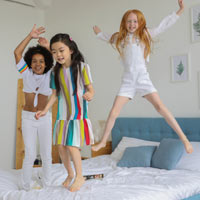 Less likelihood of developing cardiovascular disease including hyperlipidemia1;
Less likelihood of developing cardiovascular disease including hyperlipidemia1;

